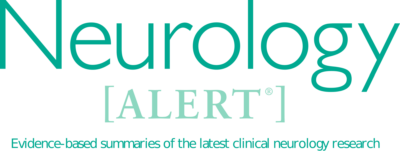
Neurology Alert – September 1, 2022
September 1, 2022
View Issues
-
Treatment of Acute Vertigo
In a meta-analysis of published studies of treatment of acute vertigo, the authors concluded that treatment with an antihistamine is more effective than benzodiazepines for the acute symptoms. However, there was no difference between the two medications in terms of resolution within one week or within one month.
-
Predicting Coma Recovery in Critically Ill COVID-19 Patients
The COVID-19 pandemic presented us with an unprecedented number of critically ill patients with coma. These investigators determined that the degree of hypoxemia determined the depth and duration of coma, but recovery was much better than expected and could be delayed by several weeks.
-
Thymectomy for Treatment of Myasthenia Gravis
In this retrospective study of the long-term benefit of thymectomy (median follow-up = 89.5 months), only half of those who had an initial positive response showed a sustained response. There was no clinical factor that predicted a long-term response.
-
Inclusion Body Myositis
This is a population-based study of inclusion body myositis (IBM) patients from a region of Sweden over a 33-year period. IBM presents later in life and has an unusual pattern of weakness with finger flexion, quadriceps, and swallowing muscles affected. Although it is described as an inflammatory myopathy, it does not respond to any immune-suppressive medications. It is a progressive disorder that reduces lifespan.
-
Lack of Brain Temperature Variation May Predict Mortality Among Patients with Brain Injury
Variations in brain temperature appear to be a normal physiological variable. An absence of brain temperature variation may be a novel predictor of mortality among patients with brain injury.
